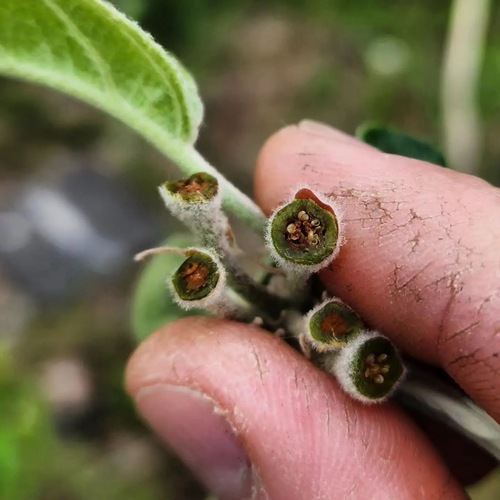Mollie Burke, a Democrat, represents the Windham-8 District in the Vermont House of Representatives.
As our attention turns to spring and daffodils pop up out of the ground, it is sobering to reflect on a winter that never really arrived.
For more than 30 years, we have heard about the future weather and climate scenarios that would come to pass if we failed to reduce the greenhouse gas emissions that contribute to global warming.
Those warnings, mainly unheeded, predicted what seemed like a far-off future of disruption caused by a warming planet. Unfortunately, that future appears to have arrived at our doorstep.
We can no longer ignore the signs that have visited us this past year: catastrophic flooding, drought, smoky summer air, and now this barren winter.
For all the complaints about winter, it serves a celebratory function. To me, the first snows spread quiet across the land and serve to inspire reflection and an inward orientation.
So many of our social and cultural traditions are based in the winter season - skating on ponds, skiing, snowmobiling, sledding, Winter Carnival events.
Without a real winter, a snowy winter, we have cold rain and a drab landscape, not to mention the impact on the ski industry that is so important for Vermont's economy.
And while this affects me as a personal loss, I know that the effects of climate change here and all over the world are causing loss of life, damage to crops and property, and economic and social disruption.
* * *
As a member of the Vermont Legislature I have been given the responsibility and the privilege of helping to address what our state can do about this problem here.
In 2020, the Vermont Legislature passed the Global Warming Solutions Act (GWSA). This important bill made mandatory the climate and energy goals that were enshrined in our Comprehensive Energy Plan. It also established a Climate Council of stakeholders tasked with writing a plan to help the state reach its emissions goals.
The Climate Action Plan (CAP), released in 2021, laid out pathways by which the various sectors of the Vermont economy could reduce emissions.
I serve on the transportation committee. The transportation sector constitutes about 40% of Vermont's greenhouse gas emissions (GHGs). One of the pathways in the CAP is vehicle electrification. To reach our climate goals we should have 47,000 electric vehicles (EVs) registered in the state by 2025 and 126,000 by 2030. We are not currently on track to meet those goals, but the pace of EV adoption is accelerating thanks to our vehicle incentive programs.
In 2019 my committee adopted legislation to set up an incentive program to help low- and moderate-income Vermonters purchase a new electric or hybrid electric vehicle. At the same time, we established a program, MileageSmart, to help low-income residents purchase a used fuel-efficient vehicle.
I encourage readers to check out the Drive Electric Vermont website. You can find information about different vehicles and a calculator to determine what you would pay with the various incentives.
Electric vehicles not only reduce GHG emissions; they also promote better air quality and reduce transportation costs. The transportation energy burden for low- and moderate-income Vermonters is significant.
These programs have been popular. They can make it possible to purchase an electric vehicle. There are now approximately 13,000 EVs registered in Vermont. But we face profound challenges to meeting our climate goals.
* * *
No fewer than 50 bills are circulating in the House and Senate related to addressing climate change. There are bills about land use and biodiversity protection, renewable energy, flood resilience, funding for transit and the deployment of EV charging stations.
On the federal level, I give credit to President Biden for the Infrastructure and Jobs Act that is bringing about $32 million to Vermont for carbon-reduction programs. Biden's Inflation Reduction Act may provide us with another $90 million through the IRA's Climate Pollution Reduction Grants program.
This does not mean that we are solving the problem, but we are working on it.
We are not going to prevent the effects of climate change on our state. But in concert with other states and countries, we can try to avoid the worst consequences.
